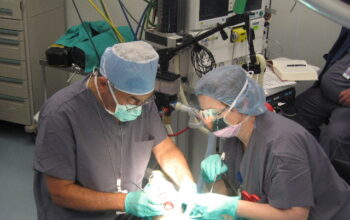Stress is an inevitable part of life. From work deadlines to personal responsibilities, we all encounter stressors that can take a toll on our well-being. While stress itself is not inherently harmful, chronic or excessive stress can have a significant impact on various aspects of our health, including the aging process. In this article, we will delve into the relationship between stress and aging, exploring the mechanisms behind it and providing valuable insights on how to manage and mitigate the effects of stress for a more youthful and healthier life.
The Science Behind Stress and Aging
Stress triggers a cascade of physiological responses in our bodies. When we perceive a threat or stressor, our brains release stress hormones, such as cortisol and adrenaline, as part of the “fight or flight” response. While this response can be life-saving in immediate danger, chronic stress keeps these hormones consistently elevated, wreaking havoc on our bodies over time.
Telomeres: The Aging Clock
One fascinating aspect of stress and aging is its impact on telomeres. Telomeres are protective caps at the ends of our chromosomes, similar to the plastic tips on shoelaces that prevent them from fraying. They play a crucial role in cell division and replication. However, each time a cell divides, telomeres shorten. When telomeres become too short, cells can no longer divide, leading to cellular aging and, ultimately, cell death.
Chronic stress accelerates the shortening of telomeres, effectively speeding up the aging process at the cellular level. Shortened telomeres are associated with a higher risk of age-related diseases, including cardiovascular disease, diabetes, and certain types of cancer.
Oxidative Stress and Inflammation
Stress also contributes to oxidative stress and inflammation in the body. Oxidative stress occurs when there is an imbalance between free radicals and antioxidants in the body. Free radicals are highly reactive molecules that can damage cells, proteins, and DNA, leading to premature aging and various health issues.
Chronic stress can lead to the overproduction of free radicals and a decrease in the body’s antioxidant defenses, exacerbating oxidative stress. Inflammation, another byproduct of stress, has been linked to a wide range of age-related conditions, from arthritis to neurodegenerative diseases.

Managing Stress for Healthy Aging
While we may not be able to eliminate stress entirely from our lives, we can take proactive steps to manage and reduce its impact on our aging process.
1. Mindfulness Meditation
Mindfulness meditation is a powerful tool for reducing stress. It involves focusing your attention on the present moment, which can help break the cycle of rumination and worry. Regular meditation practice has been shown to lower cortisol levels and improve overall well-being.
2. Exercise Regularly
Physical activity is not only great for your body but also for your mind. Exercise releases endorphins, which are natural mood lifters. It can also help reduce cortisol levels and promote better sleep, further combating the negative effects of stress.
3. Healthy Diet
Eating a balanced diet rich in fruits, vegetables, and whole grains provides essential nutrients that support your body’s stress response. Avoid excessive caffeine and sugar, as they can exacerbate stress and disrupt sleep.
4. Get Adequate Sleep
Quality sleep is essential for stress management and overall health. Establish a regular sleep schedule and create a relaxing bedtime routine to improve sleep quality.
5. Seek Support
Don’t hesitate to seek support from friends, family, or a mental health professional. Talking about your stressors and concerns can provide valuable insights and emotional relief.
6. Practice Relaxation Techniques
Engage in relaxation techniques such as deep breathing, progressive muscle relaxation, or aromatherapy to calm your nervous system and reduce stress levels.
Conclusion
Stress and aging are intertwined, but with the right strategies, you can minimize stress’s detrimental effects on your overall health and well-being. By practicing mindfulness, maintaining a healthy lifestyle, and seeking support when needed, you can slow down the aging process and enjoy a more vibrant and youthful life.
Remember that managing stress is a lifelong journey. By making these strategies a part of your daily routine, you can age gracefully and maintain your vitality well into the future. For more information, visit their page, where they discuss various subjects such as NMN powder.





